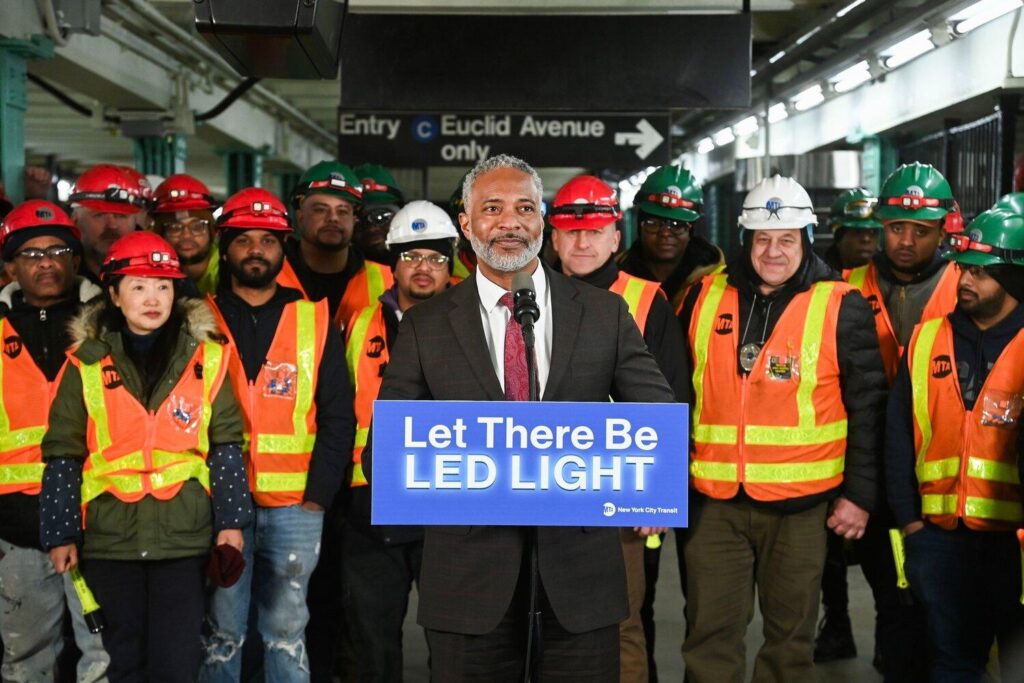Transport Workers Union Demands Swift Action on MTA Workers’ Compensation Delays
Union Voices Strong Opposition to Prolonged Workers’ Compensation Delays at MTA
The Transport Workers Union has expressed deep concern over the extensive delays in disbursing workers’ compensation benefits to employees of the Metropolitan Transportation Authority (MTA) who have suffered workplace injuries. Union officials report that many injured workers have endured waiting periods exceeding three months, resulting in severe financial distress during their recovery. These delays are largely attributed to administrative bottlenecks and insufficient personnel within the MTA’s claims processing division.
In response, the union has outlined several critical measures to alleviate the backlog and improve the system’s responsiveness:
- Augment staffing levels to speed up claims adjudication
- Deploy a transparent, user-friendly online portal for real-time claim tracking
- Provide consistent updates on claim progress to both employees and union representatives
| Claim Phase | Current Average Duration (Days) | Union’s Target Duration (Days) |
|---|---|---|
| Initial Assessment | 25 | 10 |
| Medical Confirmation | 35 | 15 |
| Final Authorization | 45 | 20 |
The union stresses that without immediate reforms, injured workers will continue to face undue hardship. They urge MTA leadership to prioritize these improvements to uphold their duty to the workforce that sustains the city’s transit operations daily.
Consequences of Compensation Delays on MTA Employees and Their Families
Extended postponements in workers’ compensation payments have inflicted considerable financial and emotional burdens on MTA employees and their households. Numerous workers report escalating debts, missed essential payments, and difficulty managing routine expenses due to the unpredictability of receiving benefits. The ripple effects extend to family members, with children experiencing interruptions in schooling and healthcare appointments. Such delays not only destabilize family life but also erode confidence in the transit authority’s commitment to its employees.
Union leaders highlight that the repercussions go beyond finances, contributing to worsening mental health and declining morale within the workforce. Key challenges identified include:
- Heightened anxiety and stress among injured workers awaiting compensation
- Inability for families to plan for ongoing medical care or financial needs
- Growing distrust toward MTA management’s dedication to employee well-being
Recent internal data reveals that the average delay in compensation payouts now exceeds 90 days, significantly surpassing industry standards and complicating recovery for injured personnel.
| Area Affected | Reported Impact |
|---|---|
| Financial Security | Reduced household income, accumulation of debt |
| Health & Wellbeing | Increased stress levels, postponed medical treatments |
| Family Dynamics | Disruptions in education and healthcare scheduling |
| Workplace Environment | Lowered trust in leadership, higher absenteeism rates |
Root Causes Behind the Workers’ Compensation Processing Backlog at MTA
The ongoing backlog in workers’ compensation claims at the MTA is primarily driven by a combination of systemic inefficiencies. Outdated administrative workflows coupled with a shortage of qualified staff have severely hindered the timely resolution of claims. As the volume of injury cases rises annually, the existing infrastructure struggles to manage the increased demand, resulting in prolonged wait times for employees seeking benefits. Furthermore, the absence of integrated technological platforms impedes smooth data exchange and interdepartmental communication, exacerbating delays and frustration among claimants and union officials.
Additionally, the intricate nature of claims evaluation, which involves multiple layers of documentation, medical assessments, and legal scrutiny, creates further bottlenecks. Key contributing factors include:
- Disjointed workflows: Separate teams handling different claim stages without cohesive coordination
- Inadequate resource allocation: Critical positions remain understaffed or overwhelmed, slowing adjudication
- Regulatory complexities: Mandatory compliance procedures that, while essential, extend processing durations
| Issue | Effect on Backlog | Recommended Solution |
|---|---|---|
| Staffing Deficiencies | Prolonged claim evaluations | Expand recruitment and enhance training programs |
| Technological Shortcomings | Slow data processing and communication | Adopt integrated case management software |
| Regulatory Barriers | Extended verification timelines | Streamline compliance steps where feasible |
Union Advocates for Transparent, Efficient Claims Processing and Enhanced Support
In light of the persistent delays, the union representing MTA workers has called for a thorough overhaul of the workers’ compensation claims system. They argue that the current process is encumbered by redundant procedures and lacks sufficient transparency, which undermines trust and imposes unnecessary hardship on injured employees. Union leaders are pushing for a streamlined workflow that eliminates superfluous steps and introduces a transparent tracking system accessible to claimants throughout the entire process.
The union’s principal recommendations include:
- Real-time digital updates enabling claimants to monitor their case status continuously
- Defined timelines for each phase of claims review to ensure accountability
- Dedicated case managers assigned to guide injured workers through the process
- Public disclosure of claims backlog statistics and resolution rates to foster transparency
| Process Stage | Current Average Delay (Days) | Union’s Proposed Goal (Days) |
|---|---|---|
| Initial Claim Approval | 45 | 15 |
| Benefit Payment | 30 | 10 |
| Appeals Resolution | 90 | 30 |
Conclusion: Urgent Need for Reform to Protect MTA Workers’ Livelihoods
As delays in workers’ compensation payments continue to impact MTA employees, union leaders are intensifying their efforts to secure prompt and equitable claims processing. With the financial security and well-being of transit workers hanging in the balance, pressure is mounting on MTA management to address the systemic inefficiencies that have plagued the system for years. Ensuring timely support for injured workers is not only a matter of fairness but also essential to maintaining a reliable and motivated transit workforce that serves millions of commuters daily.













